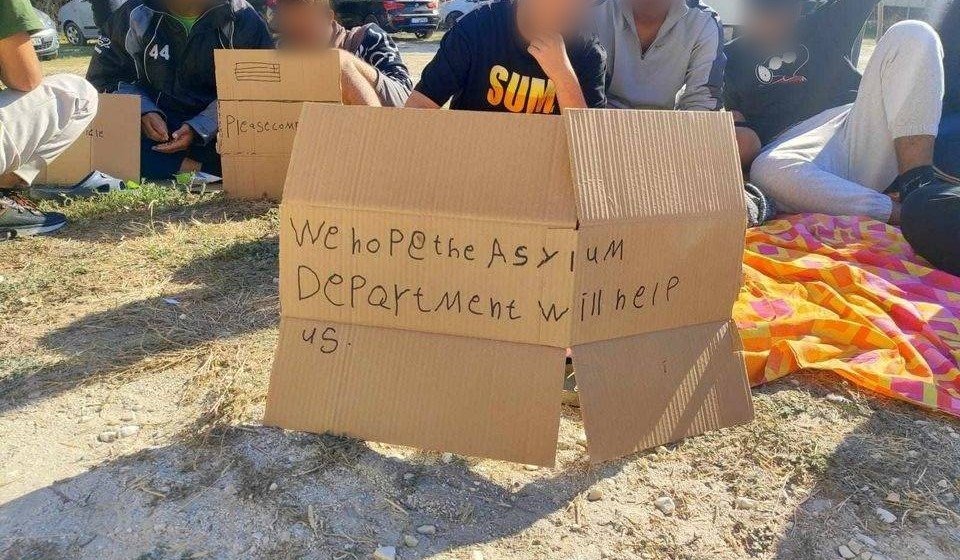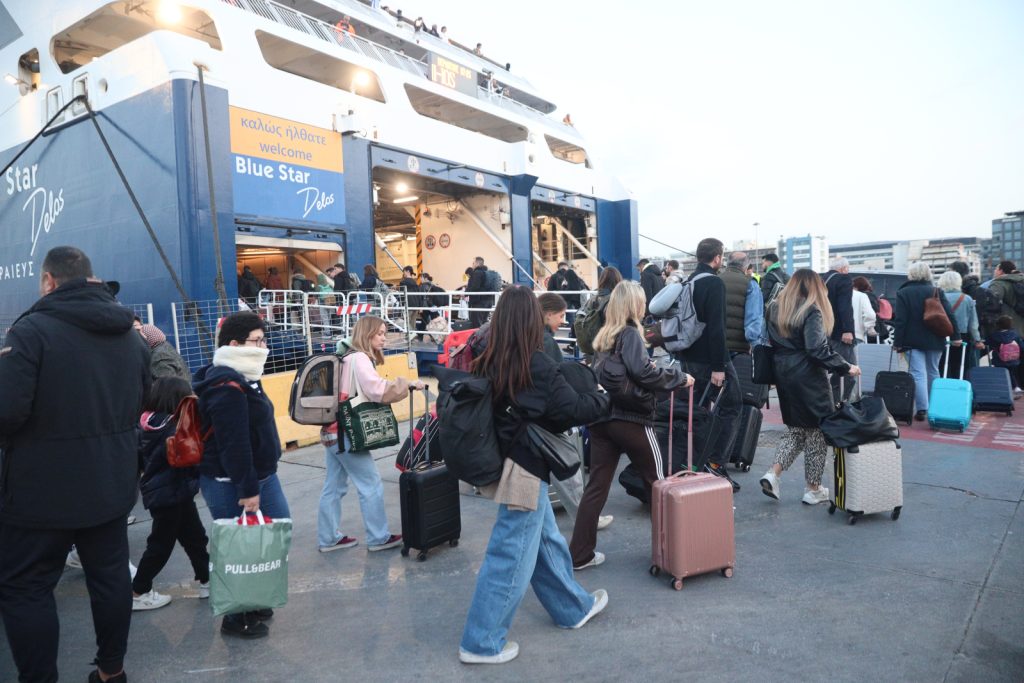Asylum seekers in Greek refugee camps are protesting because they have been left without legally required interpretation services for months.
In videos and photographs reviewed by To Vima International Edition, asylum seekers held sit-ins and gatherings outside the remote camps of Kavala in northern Greece and Koutsochero camp about 20km outside of Larissa.
Holding hand-made cardboard signs, asylum-seekers demanded interpretation for their basic communication, medical needs, and most of all for their asylum interviews. Some suggested they would go on hunger strikes to ensure their demands were met. Without interpreters to conduct these asylum interviews, asylum seekers must wait for months on end in a legal limbo, unable to leave the camps, unable to progress in their lives.
“We arrived in Koutsochero camp on 4th October and we still do not have an interview date. They told us there are no appointments because there are no interpreters,” one asylum seeker, who asked to remain anonymous for fear of endangering their asylum claim, told the NGO Mobile Info Team. “We arrived in Greece in August and have been moved to three different camps. For one and a half months we were in detention in Sintiki camp, which is in the middle of nowhere. We are doing this protest because we are being forgotten here. There are no interpreters in the camp.”
The asylum-seeker explained “Because of the lack of interpreters, the legal procedure is halted. But it’s not just the legal situation – a lot of things rely on having papers. In order to find work so we can support our families, we need to have papers.”

Asylum-seekers in Koutsochero refugee camp protest against delays in receiving asylum interview dates. November 2024. Photo courtesy of Mobile Info Team.
Other asylum-seekers in Kavala told a similar story: “We have been in Kavala camp for two and a half months and nothing has happened [with our asylum claims]. […] It’s been four days now that we are protesting. There are 25 of us. We protested peacefully, we held signs written on them saying that we need interpreters. Our signs have been taken away from us and we have been yelled at. Each day, one of us falls ill, because of the [stress of the] situation. We would like to know why there are no interpreters. We don’t know why. I don’t know how to describe the psychological state we are in.”
Interpretation services within the camps and asylum service have all but stopped since the spring.
Previously, the NGO METAdrasi provided and coordinated almost all of the interpretation within the asylum system, from initial interviews, to services inside camps, to doctors visits, to asylum interviews. The organization stopped all these interpretation services in May, stating that their contracts had not been renewed, and they had not received government funding for nine months.
Money for interpretation in the asylum system are earmarked funds, already paid by the European Commission to the Greek Ministry of Finance, and simply were not transferred to the NGO.
Since then, the entire asylum system has been working with ad hoc interpretation and a severe lack of interpreters.
An open letter to the Ministry of Migration and Asylum, signed by 36 NGOs involved with asylum support on November 1st, critiqued the ongoing disruption of interpretation services, stating: “no concrete measures towards reinstating a functional interpretation system in Greek asylum procedures seem to have been put in place.”
The letter stated that there have been “multiple instances where as a result of the situation, asylum seekers can hardly progress with their asylum claims or communicate effectively with the authorities, leading to serious consequences on all aspects of their lives.”
Both Greek and European Asylum law specify that asylum seekers must have the right to conduct the asylum interview in a language they understand. Greece has previously been taken to the European Court of Human Rights and the Court Justice of the European Union in part due to inadequate interpretation in the asylum system.
The Ministry of Migration and Asylum did not respond to requests for comment by time of publication.
On November 1 the Athens Bar Association similarly revealed that lawyers working for Greece’s Asylum Service have not been paid since November 2023, despite funds largely coming from the European Union.



